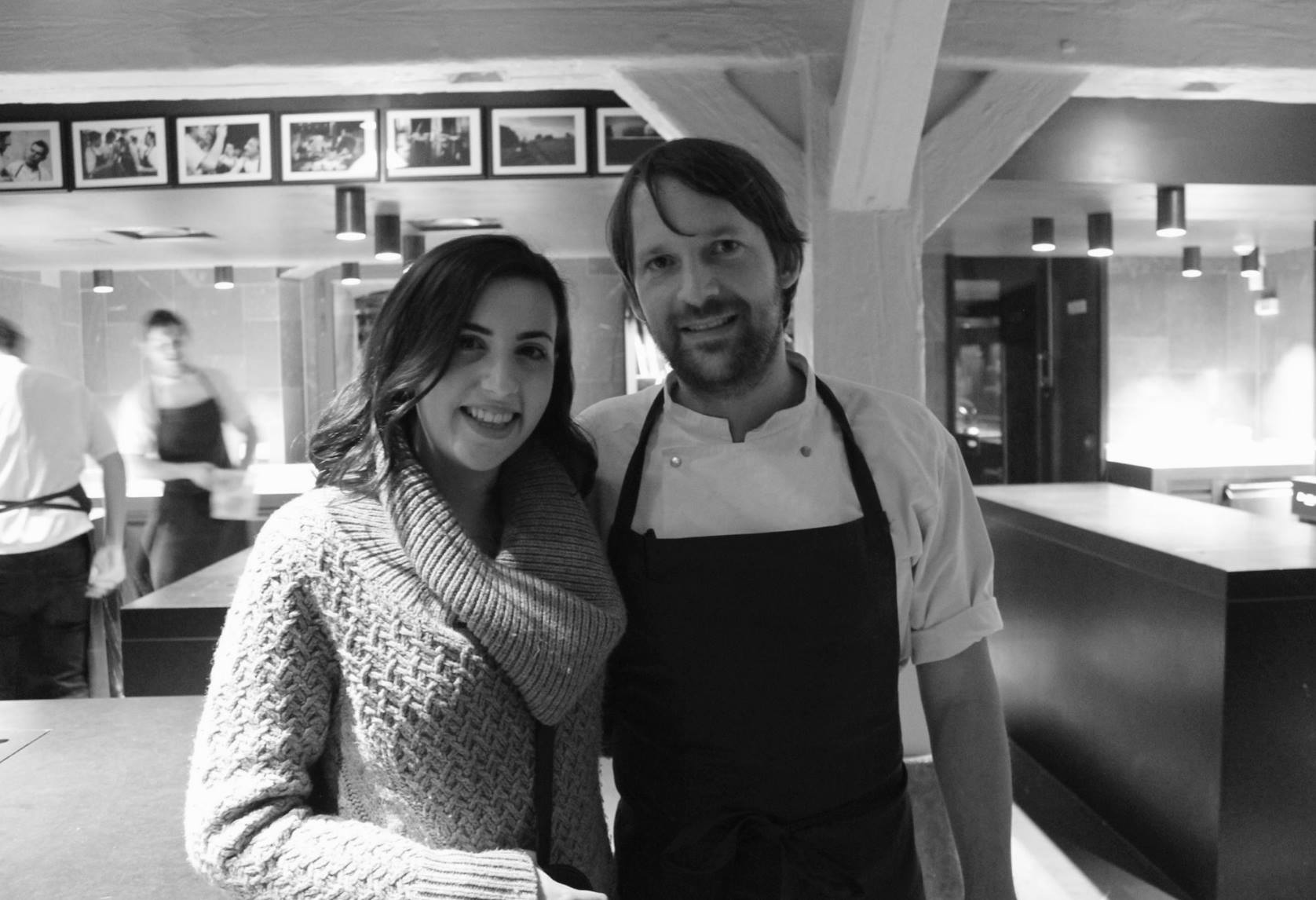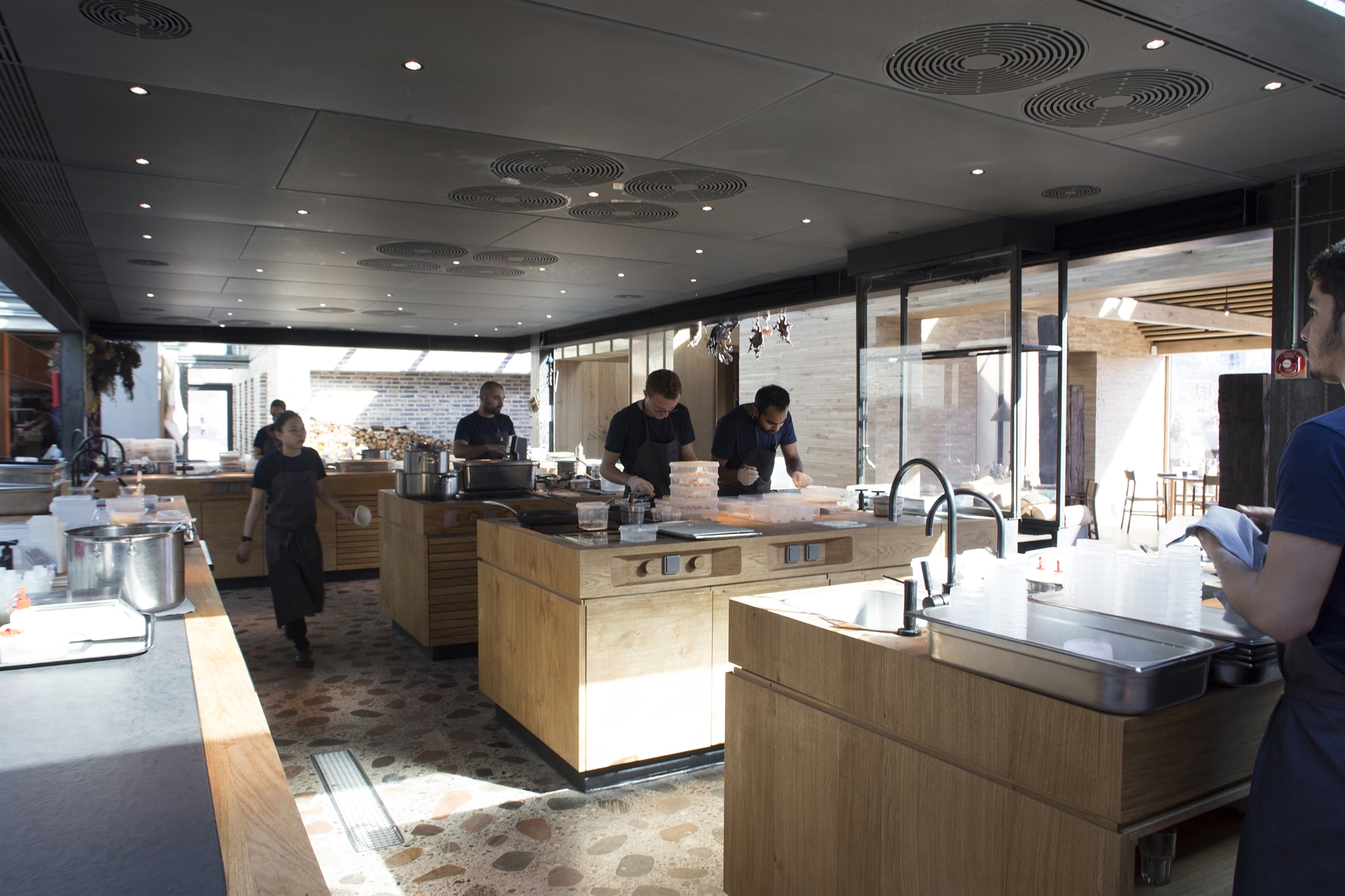
It was a beautiful summer day in Copenhagen in 2017 and Janti Michalaki was about to start her internship at the best restaurant in the world, in Nome. “I remember telling my roommate to wait for me so we could eat together in the evening.” Over a glass of wine, he told her about the experience of working the first shift at her dream job—dreams she shared with all the young chefs around the world. After all, they didn’t eat together. “From 8 in the morning I came home at 1.30 after midnight,” he recalls. It was the first time, but definitely not the last. “In 108, where I had more responsibilities (including a starless but more accessible version of Noma, opened by chef René Redzepi, which Michalaki happily switched to because “I’d be in production rather than picking herbs for 14 hours” ), I opened the store at 4 am and there were times when I stayed up to one. The next morning. I came back, went to bed, got up and went back to the restaurant.”
A few days ago, Rexhepi announced that Noma, the restaurant that has transformed fine dining with three Michelin stars, will permanently close its doors at the end of 2024 to transform into an innovative food lab. “To remain Noma, we must change,” he said. The news instantly spread to all international agencies, rose to the most popular topics on almost all sites in the world. Ianti learned about it at Kora, her bakery in Kolonaki. Her cell phone kept ringing from friends and colleagues reading the news – even her mother texted her, “Noma is closing!” He was not embarrassed by this, and not because fussing with pasta makes a person more zen. “I more or less expected it. During the pandemic, I talked to friends who worked there and they conveyed the atmosphere to me (i.e., during the pandemic, Noma started a burger project to support some kind of income). I also knew the numbers “very high costs, no profit. It seemed to go in the wrong direction. In a sense, it was appropriate. This person and group were always one step ahead. He was the first to do what others will surely do. This category gourmet meals is unstable. Unsustainable, especially for a worker.”
According to him, such a kitchen dazzles you, and you may not see that the work does not develop your creativity or skills. “It was exciting to be a part of this process. It was a wonderful feeling to be part of such a group, a sense of camaraderie that develops. It is no coincidence that you keep in touch with everyone, even after three months of work there. It’s like you were at war together.”
“We almost built it”
“I expected it. I knew there was no profit. It seemed to go in the wrong direction. This category of gourmet food is unstable. Unsustainable, especially for a worker.”
In the same trenches, but on the other side of the pass, in the service, Phoebe Cicchini was also found. In January 2018, he traveled to Copenhagen to work on the team that will open Noma 2.0. “There was a huge rush. We all did everything to open on time, practically built a new restaurant with the workers. It was an incredible experience, a close-knit team fighting for one goal.” Next to them was Redzepi, who worked at night. who wants to control everything. I will never forget how much time we spent choosing bottles to get soap into the toilets. You have no idea how many messages we exchanged on this topic. Everything goes through him. “
Both Yanti and Phoebe had the good fortune to experience version 2.0 of the Genius Chef, which had no known temper tantrums. As he himself stated, it took many hours of psychotherapy to stop acting like a thug in the kitchen. “I’ve heard of very bad cases, but I haven’t experienced them myself,” Ms Michalaki says. “On the other hand, when I was working in France, at a difficult moment in the service, they stuck my head in the kitchen. However, there will always be bullying in the kitchen, the pressure from all these people working so many hours together is huge and not going anywhere.
It’s kind of part of a “professional culture,” says Dr. Haralambos Yousbasoglu, an associate professor of human resource management at the University of Bournemouth who has been studying working conditions in the restaurant industry for the past few years. K. “There’s an old school of chefs who think you have to go through military grade capons to get into their crew. If you can handle that, at some point you’ll join the team and get to work.” It’s no coincidence in the kitchens, the term “brigade” is used, referring to the military unit. “As this generation slowly passes, caps are gradually eliminated. In addition, in hotel chains there is no tolerance for such practices from HR departments. Bowling continues, that is, someone curses you over your head, it’s just that you don’t eat a frying pan on your head anymore. Military discipline is always required because the standards are very high. Working in a restaurant like Noma is like playing in the Champions League.”
In his study, published in the International Journal of Hospitality Management in 2018, he documented widespread alcohol and drug use among workers in Michelin-starred restaurants in the UK and Ireland. According to chefs, alcohol, as well as cannabis, helps them withstand the pressure of work or regain balance after the frenzy of service. The study also showed that cocaine is used to maintain high performance. In fact, it turned out that the health and well-being of the chefs were being sacrificed for the restaurant. “Of course, in restaurants of this level, employees have a certain profile, they are very passionate, they know what they are achieving,” Mr. Yusbasoglu comments. “If they didn’t want that pressure, they could get a job at a casual restaurant where they could have a reasonable number of hours. It’s a choice.”



Tired of making beetroot look like a swallow?
In recent years, criticism of Noma — and restaurants of this magnitude in general — has shifted from bowling to low or no pay. As has been known for many years, high-end restaurants depended heavily on the unpaid labor of young enthusiastic chefs who came to learn alongside great chefs. “We have an oxymoron of top chefs talking about sustainability, being in touch with nature, zero waste — like they discovered America when my grandma tossed leftover lentils into the lasagne she fried in lard — and the ambitions of young people are enjoyed by children. which everyone endures in order to be able to see themselves in a similar position, ”the famous Greek chef Stavriani Zervakaku comments on“ K ”. “I have a friend who went with 800 euros rent without payment to go to the forest to collect a certain herb. It was his job.”
Phoebe Cicchini, in addition to Noma, also worked at the famous Eleven Madison Park in New York with three Michelin stars. Neither was profitable. “In these restaurants, no matter how much they charge for the menu (including the Nome, the tasting menu with wine accompaniment cost more than $ 500 per person), they do not go out. Even when we had 80-90 people a day at Noma, with such high operating costs and 150 employees (not all of them paid), it was unsustainable. This model could not work in the long run.”
Prior to his academic career, Charalambos Yousbasoglu worked for 20 years as an F&B manager or director in luxury restaurants and hotels throughout Greece. “There was a constant struggle with the chefs. My job was to protect the property of a company or an investor. The job of the cooks was to cook good food but pay the bill. But they didn’t want to get involved. They wanted something, they had to have it. I remember once we received a yellowfin tuna from Japan that arrived in Greece in two days. If it wasn’t eaten within the next two days, it had to be thrown away. This is one of the problems with these restaurants. That’s why most chefs fail when they try to open a restaurant on their own.”
Does Noma’s closure ultimately mean the start of fine dining dominoes? Nobody can say for sure. However, many young chefs decide to go their separate ways. Stavriani left Athens to open her own restaurant in Mani. “I have never worked in a gourmet restaurant because it is a very competitive marathon and for me gastronomy is something deeply emotional. I’ve worked really hard, but I can’t imagine the stress of trying to make a beetroot look like a swallow. I love beets for their shape and texture. I don’t feel the need to push myself and the material so hard to prove that I’m leading the trend. I’m going to Mani because I can’t stand this stress and want to commune with nature. I feel like I’ll be away from all this competition that I can’t stand. Far from compulsion to culinary perfection. Without emotional protection, I can’t cook for a long time.”
Phoebe says Noma will always carry it with her, but she has returned to Cyprus, where she opened the Volta wine bar in September. “I wanted a place where regular customers come to build relationships. I didn’t want the stress of perfection, which, after all, doesn’t exist. It’s elusive.” And Ianti, having returned from Denmark, deeply tired, especially mentally, redefined her attitude to her work. “I thought that killing myself, working on the edge, I would not become a better professional. I have the utmost respect for the work that is being done there, but I decided that it was not for me. The life of a baker is not easy either. “But there is peace in work when everyone else is asleep. A bakery is not as selfish as a gourmet restaurant. You serve the product, not the product you.
Source: Kathimerini
Ashley Bailey is a talented author and journalist known for her writing on trending topics. Currently working at 247 news reel, she brings readers fresh perspectives on current issues. With her well-researched and thought-provoking articles, she captures the zeitgeist and stays ahead of the latest trends. Ashley’s writing is a must-read for anyone interested in staying up-to-date with the latest developments.